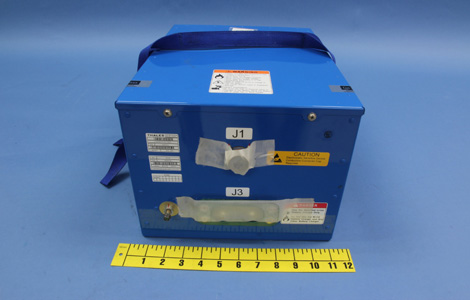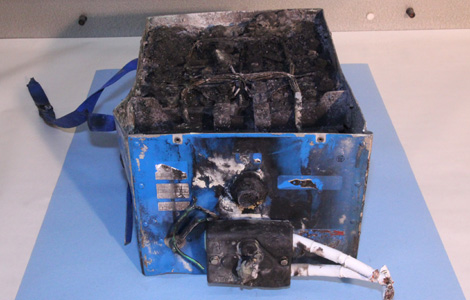About Those Airliner Batteries
They’re not the same as the AAs from your hardware store, or even your car battery
The Boeing’s 787′s problems with onboard lithium-ion batteries led to the FAA’s decision to ground the fleet. That’s hardly surprising. But some erroneous information has found its way into public forums concerning the nature of these high-tech but somewhat touchy batteries.
To begin with, the kind of battery used on the 787 is rechargeable, which makes it different from the small lithium batteries sold in AA sizes at the hardware store. Those get used up and thrown away. The 787′s rechargeables also are different from the lead-acid batteries commonly used to provide start power for automobiles. About 20 years ago, it was common to add water to lead-acid batteries when the quantity of electrolyte, a dilution of sulfuric acid, dropped too low. Today the batteries are sealed and vented.
Lithium undergoes a spontaneous chemical reaction in the presence of water, which is one reason water is not a component in its electrolyte. The electrolyte is not an acid, nor is it corrosive. The liquid used in lithium-ion batteries is made up of organic chemicals — more specifically, hydrocarbons. The greatest risk, therefore, is that the electrolyte might ignite and burn; despite some news stories to the contrary, corrosion is not a concern.
The battery also relies on an ultra-thin plastic membrane perforated by tiny openings to allow ion migration between the positive and negative poles. Maintaining battery integrity relies heavily on the precision manufacture of that component and others, as well as on the quality of materials used in fabrication. One potential weakness of lithium-ion batteries is a kind of thermal runaway in which voltages get too high and create high temperatures in one cell, which can break down and affect adjacent cells, causing a destructive cascade.
The current investigation appears to be narrowing to the manufacture of the batteries and of the battery charging systems that control rate of charge, and thereby ensure safe operation. Meanwhile, because Airbus reportedly plans to use lithium-ion batteries on its new A350 family of airliners, it is following developments closely.

